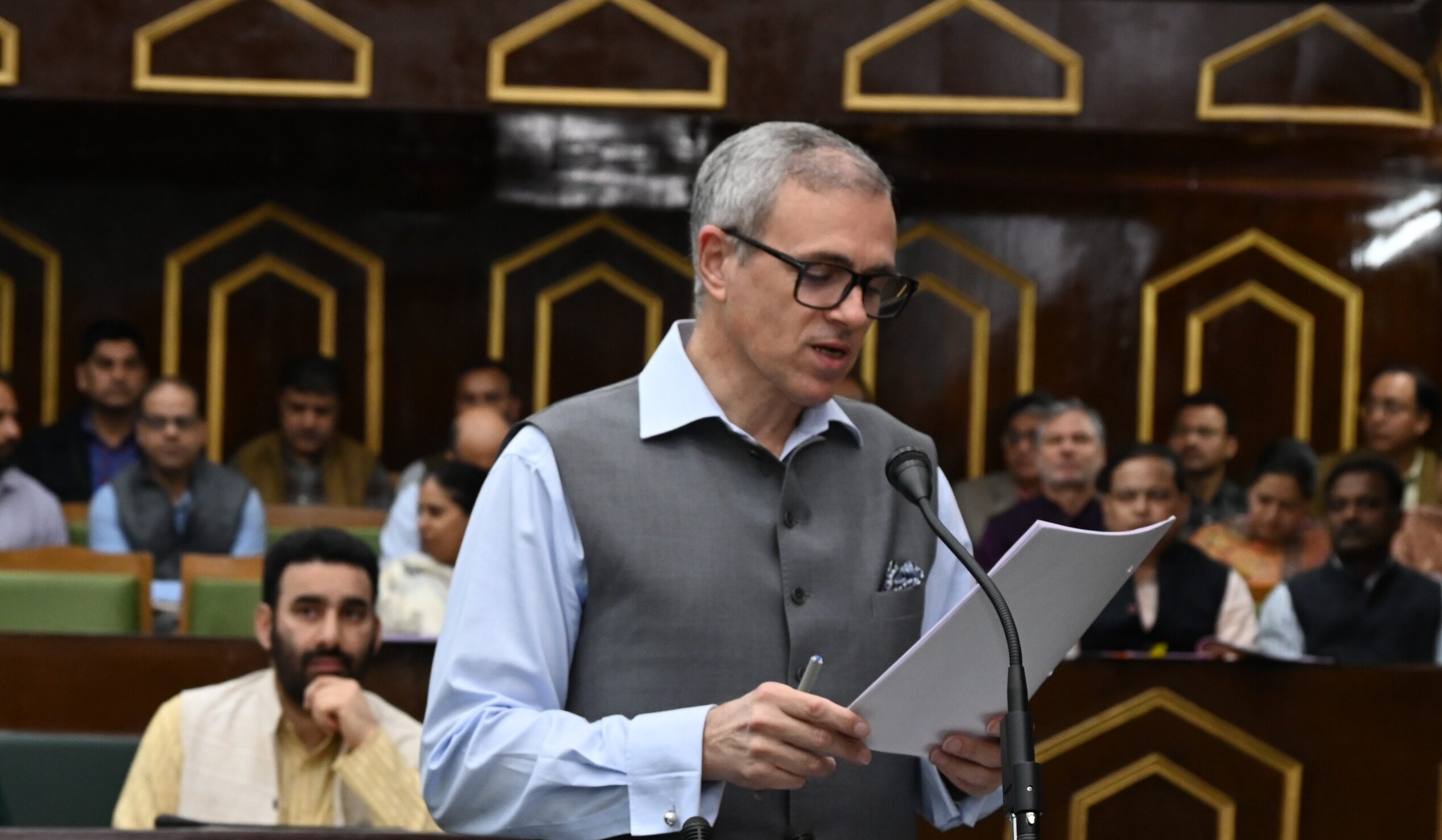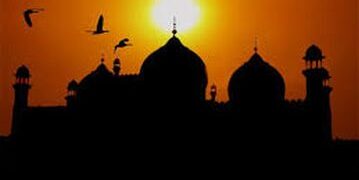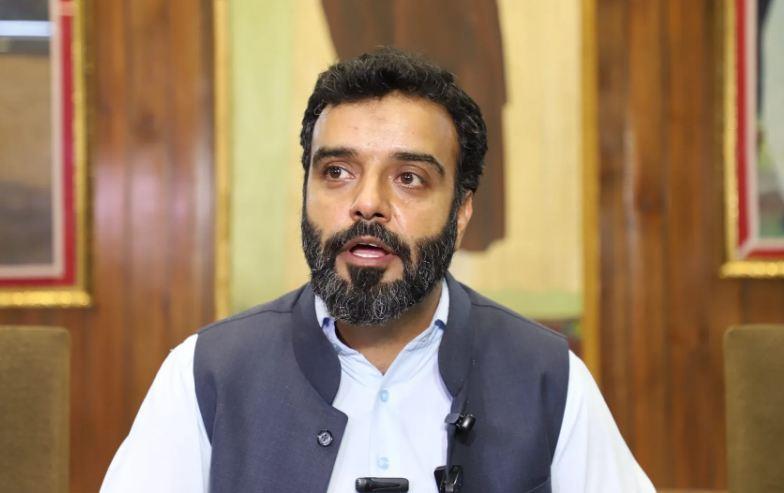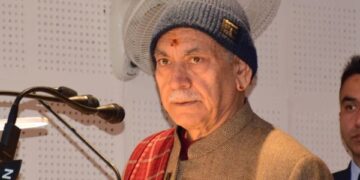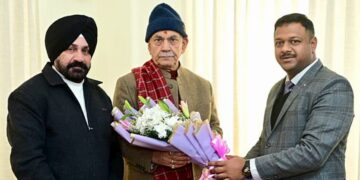Jammu: The Jammu and Kashmir Legislative Assembly on Tuesday passed the budget for 2025-26 with a voice vote, approving the appropriation bill to enable the government to utilise Rs 1.40 lakh crore from the Union Territory’s consolidated fund for the upcoming fiscal.
The appropriation bill is crucial as it allows the government to withdraw funds from the consolidated fund of the Union Territory to meet its expenses for the financial year.
Chief Minister Omar Abdullah, who also holds the finance portfolio, presented the appropriation bills for fiscal years 2025-26 and 2024-25 in the assembly, both of which were passed by voice vote after their introduction.
On March 7, Abdullah presented Jammu and Kashmir’s first budget in seven years, allocating Rs 1.12 lakh crore for 2025-26. He described it as a roadmap for economic growth and a reflection of the people’s aspirations.
While introducing the bills, the chief minister said that the bill authorises the payment and appropriation of sums from the Union Territory of Jammu and Kashmir’s consolidated fund for the services of the fiscal years 2025-26 and 2024-25.
“The Jammu and Kashmir legislative assembly enacts this bill in the seventy-sixth year of the Republic of India, exercising powers vested under the Jammu and Kashmir Reorganisation Act, 2019,” it stated.
The bill authorises the expenditure of Rs 1.40 lakh crore from the consolidated fund of the Union Territory of Jammu and Kashmir for the fiscal year 2025-26.
It specifies that sums not exceeding those listed in column 3 of the schedule, amounting to a total of Rs 1.40 lakh crore will be used to cover various expenses during the fiscal year 2025-26 for services specified in column 2 of the schedule.
Furthermore, the bill states that the sums authorised by this Act to be paid and applied from the consolidated fund of the Union Territory of Jammu and Kashmir shall be appropriated for the services and purposes detailed in the schedule for the said year.
As per the recommendation of the appropriation bill for the year 2025-26, the Lieutenant Governor under the Jammu and Kashmir Reorganisation Act, 2019, recommended the introduction and consideration of the bill by the Jammu and Kashmir Legislative Assembly.
“This bill is introduced under Section 43 read with Sections 41 and 44 of the Jammu and Kashmir Reorganisation Act, 2019, to authorise the appropriation from the Consolidated Fund of Jammu and Kashmir of the funds needed to cover expenses charged to the consolidated fund and grants made by the Legislative Assembly for the expenditure of the Jammu and Kashmir Government for the fiscal year 2025-26, as specified in the bill,” according to the bill.
While presenting the budget on March 7, Abdullah expressed that J&K stands on the brink of a new era of peace and prosperity, with a semblance of normalcy returning after over three-and-a-half decades of turmoil.
He commended Prime Minister Narendra Modi, Union Home Minister Amit Shah, and Union Finance Minister Nirmala Sitharaman for their support across various sectors.
CM pledges to fulfill all poll promises including 200 units of free electricity
Chief Minister Omar Abdullah on Tuesday said the National Conference government is promise-bound to implement all its election promises including giving 200 units of free electricity to all households falling under the Antyodaya Anna Yojana (AAY) category.
Abdullah said this in the Legislative Assembly while replying to a clubbed question by Peoples Conference’s Sajad Gani Lone, BJP’s Narinder Singh Raina and independent Shabir Ahmad Kullay.
The chief minister was at his witty best while informing the House that the government will provide free electricity to all AAY households, integrating the scheme with the PM Surya Ghar Muft Bijlee Yojna (PMSGMBY).
“…our concern is milk and which cow gives us milk does not mean anything for us. Our aim is to give 200 units of free electricity to the people and it will be done…we will ensure that there is not much impact on the exchequer,” Abdullah said.
The chief minister said he had clarified thrice on the subject in this House – during the discussion on Lieutenant Governor’s address, budget presentation and discussion on grants.
“All the promises in our manifesto will be fulfilled. We are promise-bound to the people. We were neither playing with the truth at that time (during election campaigning) nor today (in the government),” he said.
However, Abdullah said the promises would be implemented in a structured manner. “It is evident that the first preference will be given to the most deserving, the poorest of the poor. We are starting from the AAY category and its ambit will be extended subsequently. This is just the beginning.”
“You are raising the apprehension that it won’t run but it is yet to start. Let it commence first and then if it fails to work, we will change the scheme. Our aim is to give electricity to the people,” he said.
Lone, a former minister, in his supplementary demanded a direct reply whether the government is going to provide free electricity to every household, saying the way it started, 50 years are needed to fulfill the promises of providing 200 units of free power to 25 lakh households.
“I am asking him (CM) what is your name and he is replying what is there in the name because everyone has a name. I want a one word answer, yes or no and also when (you are planning to give 200 free units),” the Peoples Conference legislator from Handwara said.
The chief minister in his response said “my English probably is not better than Sajad sahib, and that is why I do not use much English…two questions were posed, whether we are giving free electricity and when, and so the answer cannot be in one word. How to provide 200 free units of electricity is our responsibility and we will see how to fulfill this”.
Earlier, replying to the main question, Abdullah said the government shall provide 200 units of free electricity to all AAY households, integrated with the PM Surya Ghar Muft Bijlee Yojna (PMSGMBY).
“The proposal aims to benefit all households falling under the AAY category by providing them with free electricity up to 200 units, thereby alleviating their financial burden and improving their quality of life,” he said, adding this would be done through the RESCO, Utility-Led Aggregation model or any other financially viable model to benefit them.
Regarding electricity bills, Abdullah said the current tariff for domestic consumers ranges from Rs 2.30 per unit (for up to 200 units per month) to Rs 4.35 per unit, which is among the lowest in the country.
For the Below Poverty Line (BPL) category, the tariff is even lower at Rs 1.40 per unit for consumption up to 30 units per month.
In comparison, the average cost of power supply is around Rs 7 per unit. As such, there are no excessive bills charged to consumers, the chief minister said, adding metered consumers are billed based on actual consumption, while unmetered consumers are billed on a flat-rate basis, which is determined by their sanctioned load.
Further, any billing-related complaints are promptly examined and addressed as per the electricity supply code, he said.
As regards the waiving of excessive electric bills, he said in an effort to streamline the billing and collection systems, an opportunity to waive the interest or surcharge component on outstanding electricity arrears has been provided to domestic consumers to clear their dues under the ongoing amnesty scheme.
“The government intends to extend the existing amnesty scheme, with modifications. A large number of consumers from almost every district have already benefited from this scheme,” Abdullah said.

